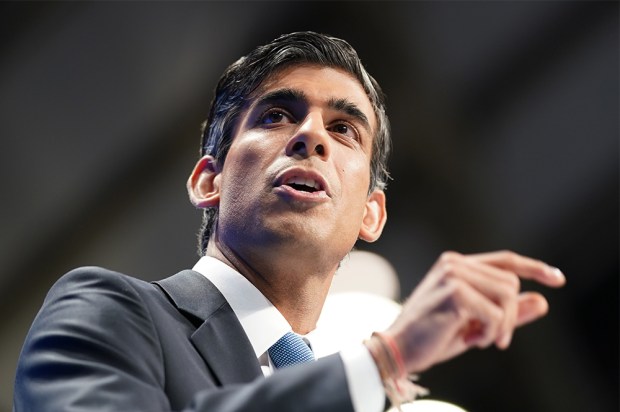In some alternative universe the Labour party, as under Tony Blair in the mid 1990s, is busily preparing for government, its confidence boosted by a massive lead in the polls over a shambolic Tory administration. Back in this one, however, Labour is crumbling even faster than the divided and unpopular Conservatives. Remarkably, while the Tories have seen a collapse in their share of the vote to just 22 per cent, according to one poll this week, Labour has sunk to just 20 per cent. Just how it succeeded in throwing away such a remarkable opportunity to seize power is going to trouble its remaining members for decades to come.
Those members will not now include Lords Turnberg, Triesman and Darzi, all of whom resigned this week after finally abandoning their struggle to fight Labour’s anti-Semitism. Triesman, a former general secretary of the party who has been a member for 50 years, said he had concluded that under Jeremy Corbyn’s leadership Labour is beyond reform. Meanwhile, the party has responded to concerns over anti-Semitism by instructing lawyers to send a threatening letter to an ex member of staff who they believe has spoken to the makers of a BBC Panorama documentary on anti-Semitism, accusing them of breaking non-disclosure agreements (NDAs). Yes, the party which was set up to protect workers from bullying and overbearing employers, and which more recently has campaigned to prevent NDAs being used to silence whistleblowers, has itself come to behave like the very foe against which it defined itself.
Corbyn’s decision this week to commit his party to fighting for Remain if a second referendum were to be called is unlikely to boost its fortunes. Labour’s ambiguity on Brexit served it well in the 2017 general election, convincing Leavers to return to the party from Ukip while simultaneously persuading Remainers that Labour had a better chance of reversing Brexit than the Liberal Democrats. By taking the Remain side, it has condemned itself further to alienating traditional working-class supporters in the north — while being too late to cling on to the votes of those who have never accepted the result of the 2016 referendum. That group is now far better catered-for by the Lib Dems, whose unapologetic slogan ‘Bollocks to Brexit’ provides a counterpoint to the Brexit party’s message of Leave, come what may.
It has become commonplace to assert that the Conservatives face an existential crisis over Brexit, but it is no less true of Labour. The latter continues to be pulled apart by a schism which has existed since the 1970s between those who believe the European Union — like its predecessor, the European Economic Community — is a champion of workers’ rights and a bulwark against free-market capitalism, and those who believe it is an agency of neo-liberal economics which would block the establishment of a UK socialist paradise. For most of his political life, Corbyn has been firmly in the latter camp and it is hard to imagine that his views have really changed — only that he has come to a realisation that his parliamentary party will not permit him to pursue a policy of supporting Brexit.
In its relationship between leader and party, Labour is back to where it was in the summer of 2016 when Corbyn lost a vote of no confidence among his MPs but carried on anyway, winning the subsequent leadership challenge. That Labour’s social democrats failed to put up a credible candidate to challenge him did not boost confidence in their branch of the party. Nor does the failure of Chuka Umunna and his rebels to create a new centre party say much for Labour’s right. The party of Blair, which briefly seemed to encapsulate the ambitions and worries of a wide spectrum of the public, has evaporated. What seemed to work with the messianic Blair in the pulpit has fizzled into nothing when Tom Watson, Yvette Cooper and others are left to spread its word.
Labour is no longer presenting a convincing case as to why it needs to exist at all. It has deserted working-class communities in favour of the interests of metropolitan liberals — yet the Lib Dems and the Greens are doing a far better job at winning the latter over. Labour’s strategists should be looking in fear at the rise of Green parties across Europe, which are succeeding in whipping up concerns over climate change in order to advance their anti-capitalist agenda. Labour is beginning to look like a faded department store which has tried to offer something for everyone but which is being deserted by shoppers in favour of more stylish boutiques.
Perhaps predictions of its death will turn out to be exaggerated. It was, after all, written off enough times in the 1980s, only to reinvent itself. As we saw in the Peterborough by-election, Labour can see its MP hauled off to jail and yet still count on a tribal vote just about large enough to take it over the line. Though numbers are shrinking fast, Labour still has supporters who will vote for it because they have always voted for it, and cannot imagine ever doing anything else. There is the inertia, too, of the first-past-the-post system which has continually crushed challenger parties when their apparent popularity fails to translate into seats at a general election.
But for now, Labour’s weakness is offering the Conservatives a wisp of an opportunity that they hardly deserve.
Got something to add? Join the discussion and comment below.
Get 10 issues for just $10
Subscribe to The Spectator Australia today for the next 10 magazine issues, plus full online access, for just $10.
You might disagree with half of it, but you’ll enjoy reading all of it. Try your first month for free, then just $2 a week for the remainder of your first year.














Comments
Don't miss out
Join the conversation with other Spectator Australia readers. Subscribe to leave a comment.
SUBSCRIBEAlready a subscriber? Log in